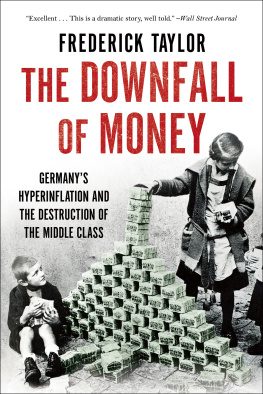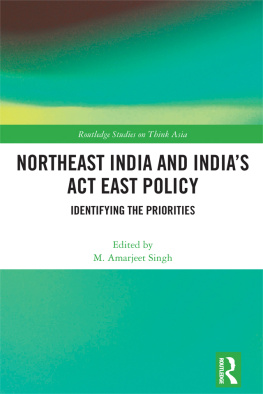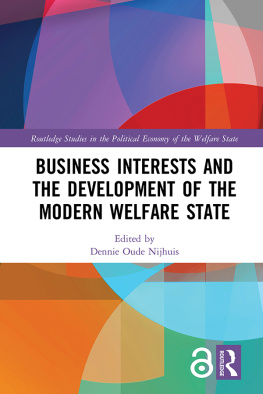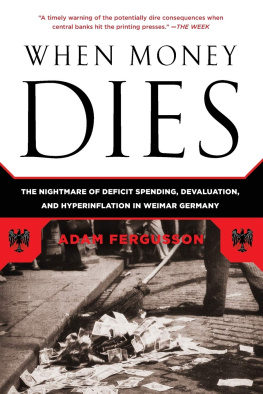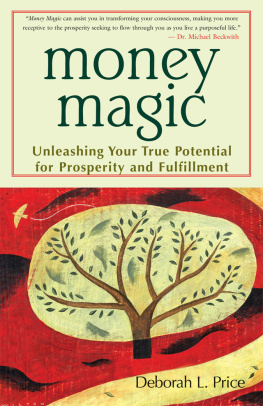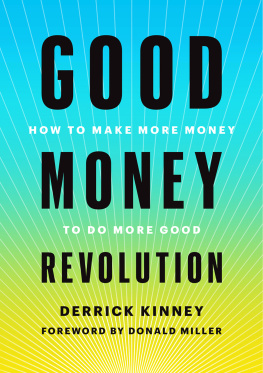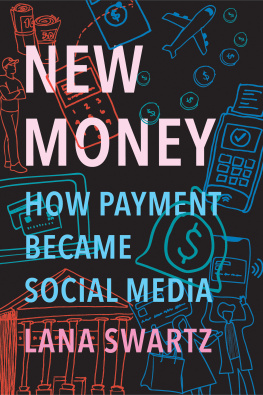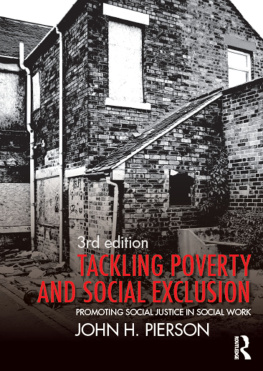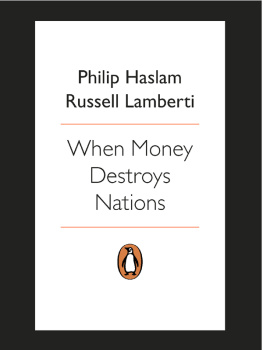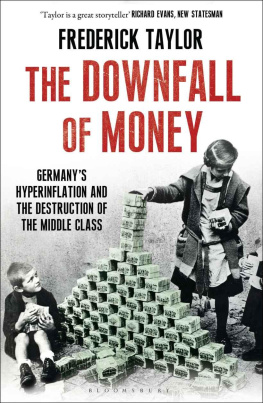Anyone casting an eye over the sources I have used for this book will notice that, more than ever, digitally stored and organised information has come to play an important role. As a writer who matured professionally in the company of the printed word, and who once viewed digital sources with some reservation, I initially had to force myself to embrace the internet. Now, however, I have arrived at a point where I find it hard to conceive of a working life that does not rely heavily on the treasures to be found (along with the dross, of course) within the ever-expanding online universe.
In researching The Downfall of Money , a book dealing with a historical period outside the scope of most living human memory, I have not been able to conduct interviews, as I have for my other work. However, I have been able to access newspapers of that time through an internet connection. Where, even at the beginning of this century, one still had to trek to libraries and archives, and spend days or even weeks trawling through thousands of pages of newsprint, it is now possible to read the thoughts, words and observations of men and women, recorded in print ninety or more years ago, through the medium of a home computer connection and with searchable databases enabling huge savings in time and energy. To be able to check the value of the mark against the dollar or other foreign currencies, for every day between 1919 and 1924, through the financial pages of a Berlin newspaper of the time and by referring to other press sources to compare the quotidian financial reality with the often tragic fates of the human beings affected by it has been a terrific gift. We may worry about the future of the printed word, and the viability of the traditional book, but for research purposes ours is in many ways a new golden age. To those who have digitised millions of such precious pages and made them available online, profound thanks.
Thanks are due especially to the London Library, another of the worlds great literary resources. I have used its extensive electronic library, and also its book borrowing facilities, to their utmost. The staff, ever patient and helpful, have ensured that any book ordered online one day usually arrived at my door, three hundred miles from London, no more than forty-eight hours later.
Among all the books I read for this project, it would be criminal not mention those written, over a period of many years, by the late Professor Gerald Feldman of UC Berkeley. I was already acquainted, from my postgraduate days in the 1970s, with his ground-breaking book, Army, Industry and Labour in Germany, 19141918 , but like anyone attempting to write sensibly about the early Weimar years, I have leaned heavily on his huge master work, The Great Disorder , as well as his biography of Hugo Stinnes and his many articles. I could not but express my profound thanks for and debt to this fine historians lifetime achievement.
Once again, Bill Swainson, my editor at Bloomsbury in London, has facilitated this project from the outset with his usual quiet determination, aided by Peter Ginna and the team at Bloomsbury in New York. At Siedler-Verlag in Germany, Tobias Winstel and Karen Guddas have also provided sterling support. And to Jane Turnbull, my agent, who is, as always, there for the troughs as well as the peaks, my most heartfelt gratitude.
The motivation for this book came in good part from Brian Perman, who has also read and commented on the writing as it has gone forward. Since I embarked on the project, a European credit crisis has become a European money crisis, with the whole question of currency viability at its heart and Germany, with its historical anxieties on this score, ever more involved in (and blamed for) the problems of the euro. Brian always thought this might be so, and so far he has been proved right.
My brother-in-law and sister-in-law, Ed and Peggy Kavounas, have made finishing this book immeasurably easier through their generosity and hospitality. Lastly, my thanks to my wife, Alice, who put up with my working absences, and a hard writing winter, without a single complaint. This book is, as ever, for her.
Why a German Trauma?
Of course, it was economic depression, not inflation, that finally brought Hitler to the Reich Chancellery, on 30 January 1933. But then he did not care which horse of the apocalypse he rode to power. Hyperinflation in the early 1920s had nurtured the seed of Nazism. A decade later, depression accompanied by what might be called hyperausterity brought the toxic plant into fruit.
Specifically a German trauma, though ? Why is this? After all, the German inflation of 1914 to 1923 it was a much slower, and more toxic, process than most people think was not the only example of this phenomenon. For instance, after the First World War, Austria, Hungary, Russia and Poland suffered from hyperinflation. In fact, Hungary underwent the experience once more after the Second World War, on an even worse scale. As did Greece. France and Italy at various points suffered from severe to hyperinflation, too, but none of these countries seems to have been permanently scarred by the experience in the same way.
Almost every German after 1918 experienced the humiliation of defeat. Most suffered in some way, often severely, from the results of that defeat shortages, political instability, rises in prices. A great country fell from a great height, and it is to that extent hardly surprising that the pain was all the more severe. But does this explain the lasting, almost obsessive memory of ruin that has persisted there ever since?
It was peculiar to Germany that the countrys extensive and exceptionally privileged educated middle class, the Bildungsbrgertum higher civil servants, academics and teachers, Protestant clergy, lawyers, doctors suffered, arguably, most comprehensively. This was a class that had bought large numbers of war bonds, whose value had started to fall even before the end of the war. In the years following 1918 the return from these would dwindle to nothing. Professional salaries and fees had also started a steep decline during the war, a fact that had caused bitter complaint even while the Kaiser was still on the throne.
With socialists in power after 1918, the wages and welfare of ordinary workers, manual and junior white-collar alike, were far more important to the republican government. The incomes of the pre-war elite, which had already declined relative to that of the average German worker, did not increase sufficiently to keep up the standard of living such men and their families had been used to. The private wealth, based on property, savings and fixed-income investments, which had cascaded down the generations, suddenly all but evaporated. Their sons could not afford to study as their fathers and grandfathers had.
Crucially, it was not just a question of money. The prestige of the class to which most of these students belonged, since the eighteenth century closely associated with its services to the German monarchical states, also took a tumble. After 1918, with the glamour and power of monarchy no longer a decisive factor in Germany, even the social status of this class seemed doomed.
The Bildungsbrgertum felt humiliation arising from defeat in the war it had always been keenly patriotic political alienation from a republican system that seemed bent on denying its values and handing the country over to the ignorant proletariat and, to cap it all, it was experiencing financial ruin, which it could blame on the inflationary financial policies of the republican government. No wonder the educated middle class decamped, in its overwhelming majority, to the nationalist right.
A cartoon in the satirical magazine Simplicissimus showed a threadbare member of the educated middle class begging a little soup from a gang of well-fed workers. It was a shameless exaggeration many workers were also suffering from the ills of the country after 1918, and had less to fall back on than the Bildungsbrgertum but there was enough truth in it to help explain the terrible divide that opened up in Germany during the early years of the Weimar Republic. The Herr Professor forced to beg. The self-description of the educated class as the new proletariat or the new poor became widespread at this time.

